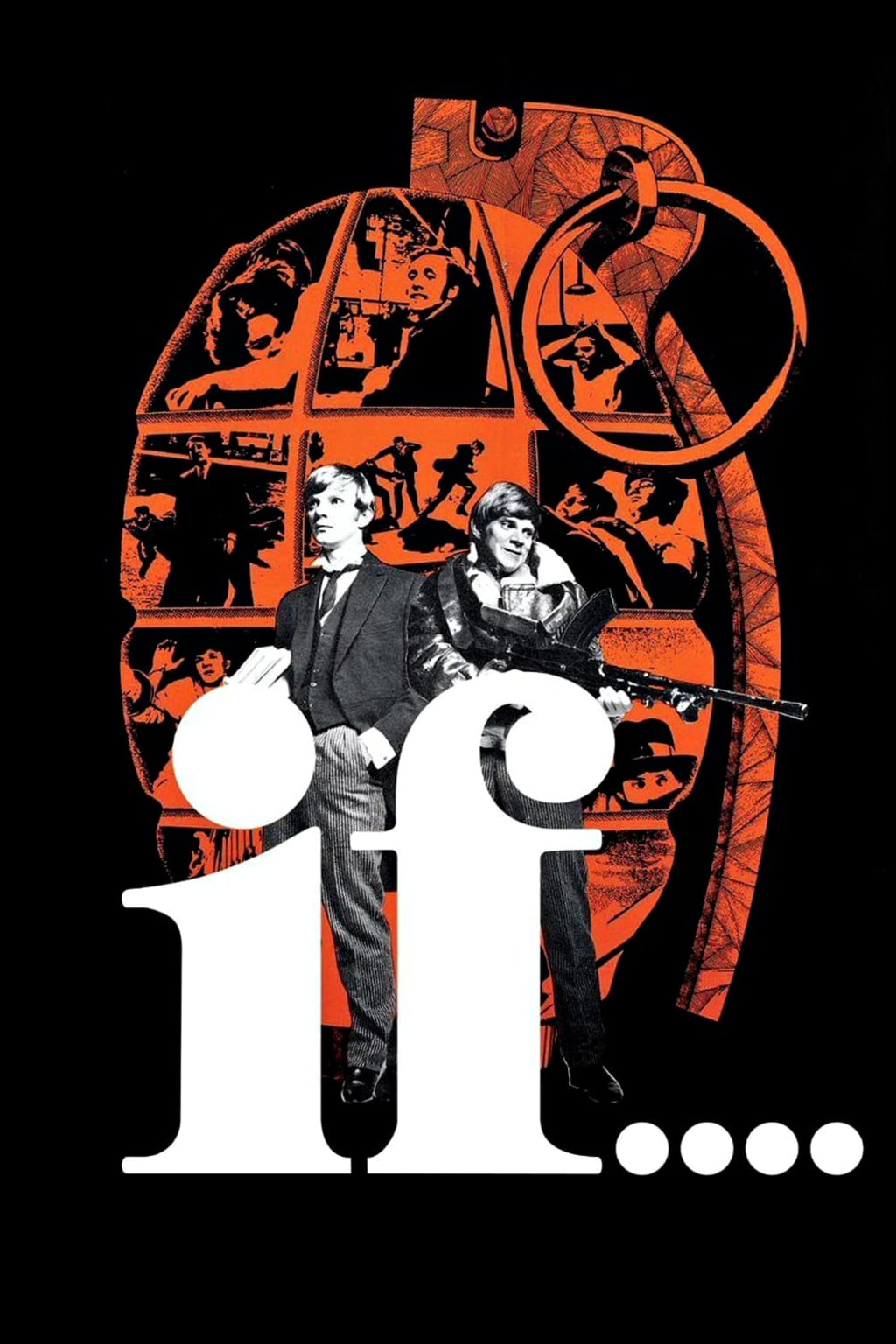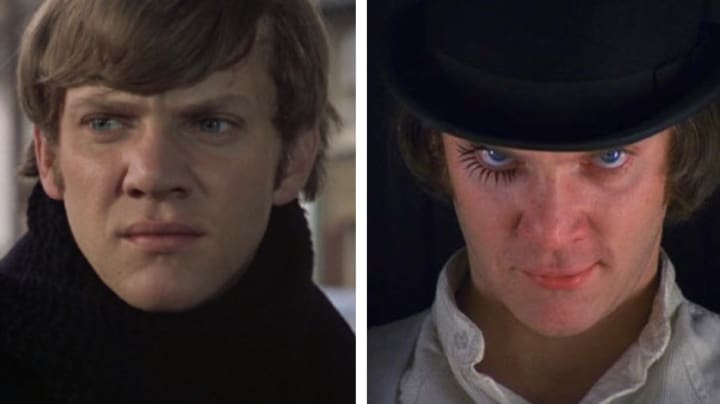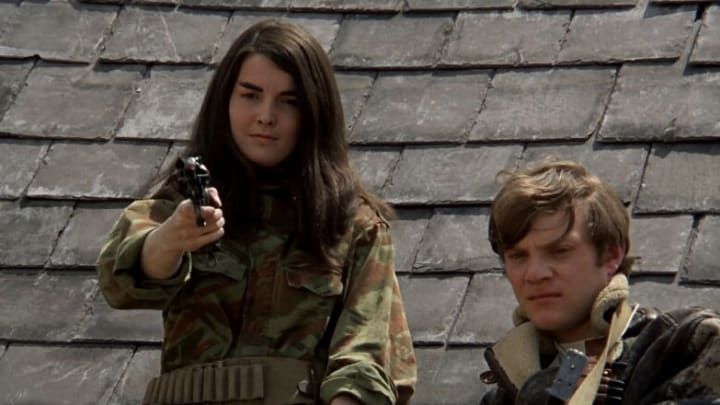'If....' Film Review
Reviewing Lindsay Anderson's 1968 film that is not only criminally underrated, but remains disturbingly relevant over fifty years later (NOTE: The following review was originally written and posted by me on Letterboxd).

if…. was my introduction to Lindsay Anderson’s filmography, so upon my first viewing I was not at all familiar with his caliber as a director. The only name I really recognized in the cast was Malcolm McDowell, who gave one of my personal favorite performances in 1971 as Alexander DeLarge in Stanley Kubrick’s A Clockwork Orange. In this film, however, he plays an entirely different type of role from the notable one he would take on three years later—and it could possibly be his darkest.

(Left to Right) Malcolm McDowell as Mick Travis in if.... (1968); Malcolm McDowell as Alexander DeLarge in A Clockwork Orange (1971)
Once again, McDowell does not disappoint with his performance; he embraces the juvenile and rebellious nature of Mick Travis perfectly, while effectively presenting the character’s subtle intricacies. Mick goes from having a lighthearted disposition—and his peers at the boarding school which he attends radiating that same adolescent vitality—to deteriorating into the downward spiral that leads to his rebellion, and, ultimately, his retribution. The tone of the story changes in sync with Mick’s foreboding character arc, seemingly manipulated by his state of mind. The latter half of the film contrasts so distinguishably with the former, and that is partly why it is viscerally disturbing as a whole. As its grim themes are gradually unraveled, dreamlike sequences become more and more frequent, and each of them show how fevered Mick’s mentality becomes. Primary example: when him and his friend sneak off campus and he meets an unnamed girl (credited simply as "The Girl") at a café, who he fantasizes about being nude and partaking in animalistic acts with. While most of the film is in color, that sequence and various other ones are in black-and-white; how arbitrarily the change in color occurs throughout makes everything feel much more surreal than it would otherwise. Most, if not all, of the monochromatic scenes are fantasies conjured in Mick's mind, and the scenes in-color are the reality that he isolates himself from. This stylistic choice has the most significance toward the ending, when he pursues his “crusade” with a few of his friends and the unnamed girl from the café earlier, who does not actually exist, but is merely a figment of Mick’s imagination.

Malcolm McDowell as Mick Travis in if.... (1968)
The ending, although it is heavily foreshadowed in retrospect, is still abrupt and cold when it transpires, and the film ends altogether on that very note. Mick sees his friends and his love interest by his side as he wreaks havoc during a Founder's Day parent-student event at the boarding school, first by setting off a smoke bomb from inside and luring people outside, and then opening fire on them. But, in the reality far beyond Mick’s troubled mind, he is the only one present, acting upon his own internalized malice. He seeks his revenge on the people who gave him unethical and harsh punishments before for his defiance toward authoritative figures, which is what pushed him to his self-destruction once and for all. He—though we see the unnamed girl instead—looks the Headmaster of the school right in the eyes when he calls for peace and shoots him dead without hesitation. The last frame is Mick shooting aimlessly into the crowd of people who wronged him in some way—through mental and physical harm, forced religious beliefs, and/or repression—and prolonging his act of vengeance. Then, it cuts to black, and the credits roll.

(Left to Right) Christine Noonan and Malcolm McDowell in if.... (1968)
The way it ends is cold and nihilistic, for it suggests no sense of hope or redemption from any character, specifically Mick’s. Nobody is able to know how his rampage finally ceases, or what happens to him; it is very open-ended and inconclusive. But I believe that this was the wisest choice on the part of screenwriter David Sherwin, because I cannot think of a better way to end such a turbulent story.
Nihilism in cinema is hit-or-miss for me normally, but Anderson’s 1968 psychological drama film exceeds my expectations in every aspect. When ruminating on it as a whole, I can comprehend how the English public school life and religion that it satirizes is conveyed through a cerebral fever dream. One could easily appreciate it on a superficial level, but personally, my appreciation stems from my own musings and reflections, because I think there is a lot to take and absorb from it, even if it is not esoteric per se. Nonetheless, if.... is a hidden gem that will hopefully be unearthed by more modern audiences with time to garner the recognition that it deserves, especially given how relevant it is to recurring calamities in today's society.
About the Creator
Anna Cheney
Putting my thoughts & feelings into words.






Comments
There are no comments for this story
Be the first to respond and start the conversation.